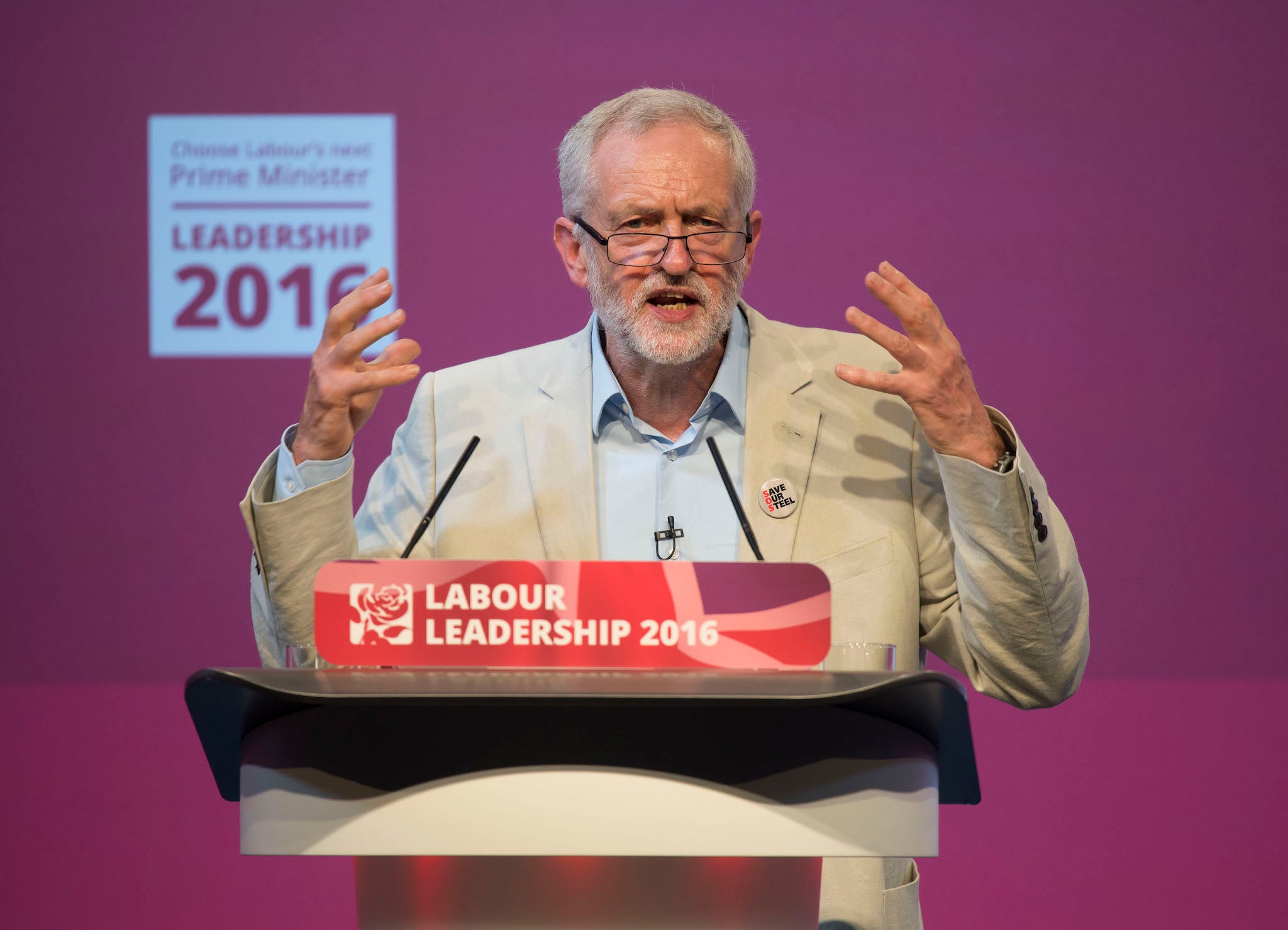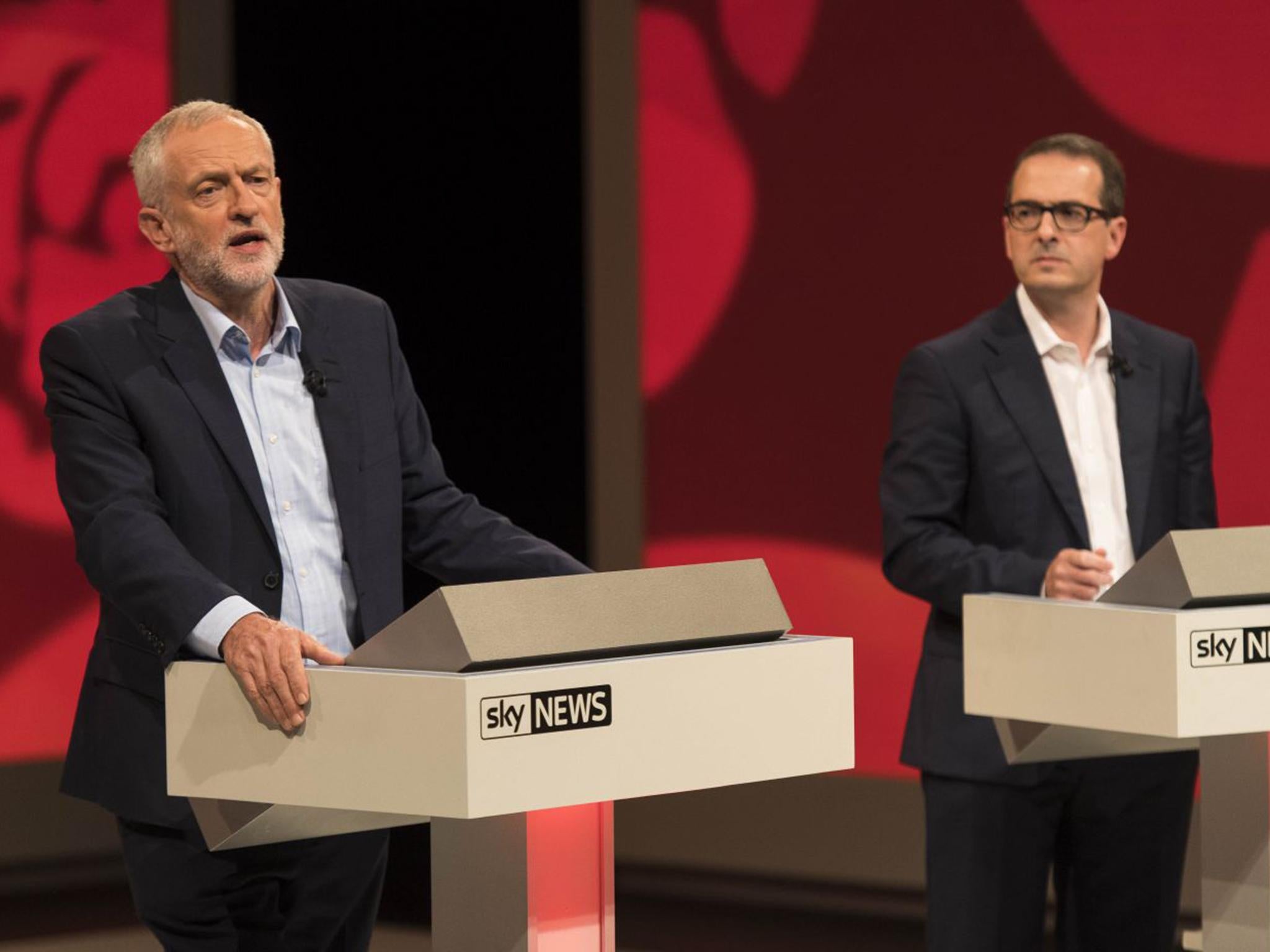'How to leave Labour' becomes most searched for party-related question on Google
Jeremy Corbyn is expected to win the renewed leadership contest despite deep division with the Parliamentary Labour Party

Your support helps us to tell the story
From reproductive rights to climate change to Big Tech, The Independent is on the ground when the story is developing. Whether it's investigating the financials of Elon Musk's pro-Trump PAC or producing our latest documentary, 'The A Word', which shines a light on the American women fighting for reproductive rights, we know how important it is to parse out the facts from the messaging.
At such a critical moment in US history, we need reporters on the ground. Your donation allows us to keep sending journalists to speak to both sides of the story.
The Independent is trusted by Americans across the entire political spectrum. And unlike many other quality news outlets, we choose not to lock Americans out of our reporting and analysis with paywalls. We believe quality journalism should be available to everyone, paid for by those who can afford it.
Your support makes all the difference.“How to leave the Labour party” is currently the most searched for question about the party on Google on the eve of the leadership election result.
The party faces a potential exodus of its more moderate supporters who have become disillusioned with the leadership of Jeremy Corbyn, who is expected to beat Owen Smith to stay as Labour leader.
The result will be announced at the party’s annual conference in Liverpool this year.
The contest was prompted by a revolt by the Parliamentary Labour Party (PLP) over his perceived lacklustre performance during the EU referendum campaign.
In the days following the Brexit vote, two-thirds of the shadow cabinet resigned citing Mr Corbyn’s lack of leadership and he subsequently lost a vote of confidence by 172 to 40 following a meeting of the PLP.
After the rebellion, MPs revealed their experiences within the shadow cabinet which they said was marred by disorganisation and dysfunction.
One MP, Thangnam Debbonaire, told how Mr Corbyn appointed her as shadow Arts Minister without telling her while she was undergoing treatment for breast cancer.
She said hee then removed her from the post the next day but again did not tell her and again refused to meet with her so she continued to work on the brief while undergoing treatment even though another MP had been appointed in her place.
She said: “The reason I then voted no confidence in him as leader is because I have no confidence in him as leader.
“Plus I had found out from other front bench women how unwilling and unable Corbyn is to communicate with, listen to or work with anyone outside his narrow group.”
The revolt by the PLP has exposed tensions between the majority of Labour MPs, who occupy the centre ground and have dominated the party for the past 20 years, and a small group of hard-left activists surrounding Mr Corbyn which has the overwhelming support of the membership.

MPs, many of whom fear losing their seats if Theresa May calls an early election, said this overwhelming support from the party membership has blinded Mr Corbyn and his team to the reality of their unpopularity with the general public.
A recent poll suggested the Labour party faced its largest poll rating in opposition in its history after it slipped to an average of 11 points behind the Conservatives.
Former leader Lord Neil Kinnock said the party is facing its “greatest crisis” since at least the 1930s.
He told BBC Panorama: “Not just in my lifetime but stretching back to the 1930s, by any examination this is the greatest crisis that the Labour Party has faced.”
He said as he was 74 he was unlikely to see another Labour government in his lifetime if things remained the way they were.
Meanwhile, both sides of the debate have been accused of being out of touch with what its voters actually want. A YouGov poll for The Times has found that just 48 per cent of Labour voters who support Brexit will continue to vote for the party.
Mr Smith has called for a second referendum on Brexit once its terms become clear and Mr Corbyn has said he supports Britain's continued relationship with the EU.
Labour MP John Mann has suggested that many his colleagues' shock at the poll's findings suggested a disconnect with their working class voters who they risk losing to anti-free movement Ukip.
Join our commenting forum
Join thought-provoking conversations, follow other Independent readers and see their replies
Comments